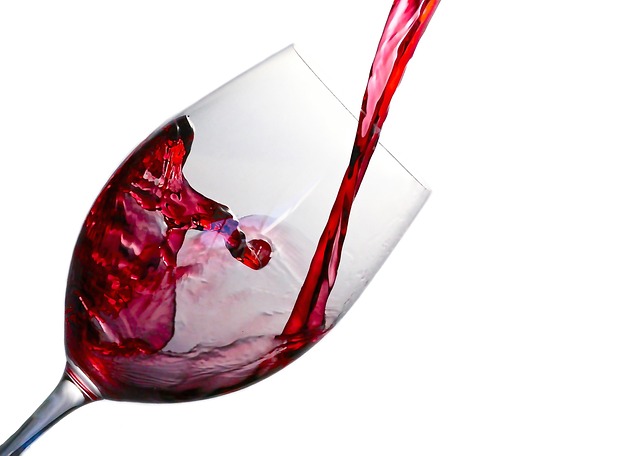Are you a wine enthusiast with a passion for uncorking your own business opportunities? Well, starting a wine shop might just be the perfect venture for you! From the intoxicating aromas to the delightful taste, wine has a way of captivating the senses and bringing people together in celebration. But before you can pop that first bottle, there are a few key steps you need to take to successfully open your own wine shop. In this article, we will guide you through the process, providing you with expert insights and practical advice on how to embark on this exciting journey and establish a thriving wine business. So grab a glass of your favorite vintage, sit back, and let us uncork the secrets of how to open a wine shop!
Obsah
- 1. Choosing the Perfect Location: Strategic Factors for a Successful Wine Shop
- 2. Navigating Licensing and Regulations: Essential Steps to Launching Your Wine Business
- 3. Curating an Exceptional Wine Selection: Tips for Stocking Your Shop
- 4. Building Relationships with Suppliers: Securing the Best Wine Inventory
- 5. Designing an Inviting Space: Creating an Atmosphere that Appeals to Wine Lovers
- 6. Hiring Knowledgeable Staff: Key Roles for an Effective Wine Shop Team
- 7. Implementing Effective Marketing Strategies: Increasing Visibility and Attracting Customers
- 8. Creating Memorable Wine Experiences: A Winning Approach to Wine Tastings and Events
1. Choosing the Perfect Location: Strategic Factors for a Successful Wine Shop
When it comes to opening a wine shop, finding the perfect location is paramount for achieving success. The right spot can make a world of difference, attracting the right clientele, and boosting your profitability. Here are some strategic factors to consider:
- Demographics: Understanding the demographics of the area is crucial. Look for a location that is within proximity to both residential areas and commercial zones, ensuring a steady flow of potential customers.
- Competition: Research the existing wine shops in the vicinity. While some competition can be healthy, too much may hinder your growth. Consider a location where you can stand out from the crowd while still benefiting from the overall market demand for wine.
- Accessibility and Visibility: Choose a location that is easily accessible and visible to passersby. A shop nestled in a busy street or a shopping center can significantly increase foot traffic and catch the eye of potential customers.
- Storage Space: Adequate storage is essential for a successful wine shop. Ensure that the location you choose has ample space to store your diverse selection of wines, maintaining their quality and availability for your customers.
Remember, the location you choose for your wine shop can shape the foundation of your business. By carefully considering these strategic factors, you can select a spot that sets you up for long-term success. Stay tuned for our next section, where we will dive into the importance of a well-curated wine collection.
When it comes to launching your wine business, understanding the licensing and regulatory requirements is crucial. Compliance with these steps will ensure smooth operations and legal compliance in the highly regulated wine industry. Here are some essential steps to help you navigate the licensing and regulatory landscape:
- Research and Determine Licensing Requirements: Begin by thoroughly researching the licensing requirements specific to your location, as regulations differ across regions and countries. Identify the various permits and licenses you will need, such as a federal winery license, state licenses, and any additional permits required for bottle labeling, import/export, and distribution.
- Secure Necessary Permits and Licenses: Once you have a clear understanding of the licenses you need, begin the application process. This typically involves completing detailed application forms, providing necessary documents and fees, and undergoing inspections. Be prepared for potential delays in the issuance of licenses, as regulatory agencies often require careful review of applications.
Dealing with licensing and regulations may seem complex, but it is a crucial part of successfully launching and operating a wine business. By conducting thorough research, staying organized, and seeking professional guidance if needed, you can navigate this process with confidence and ensure that your wine business meets all legal requirements.
3. Curating an Exceptional Wine Selection: Tips for Stocking Your Shop
When it comes to curating a stellar wine selection for your shop, there are a few key considerations that can make all the difference. First and foremost, it’s important to understand the preferences and taste profiles of your target customers. This will help you tailor your selection to their specific needs and desires. Conduct market research, engage with customers, and take note of popular trends to ensure your wine offerings align with current demands.
Another vital aspect of curating an exceptional wine selection is to focus on variety. A diverse selection of wines will appeal to a wide range of customers and cater to different preferences. Stock up on reds, whites, and rosés from various regions around the world to offer a well-rounded assortment. Don’t forget to include sparkling wines and dessert wines to add an extra touch of sophistication and indulgence. Furthermore, consider including a mix of well-known, popular brands and unique, lesser-known labels to capture the attention of connoisseurs and adventurous wine enthusiasts alike.
4. Building Relationships with Suppliers: Securing the Best Wine Inventory
When it comes to running a successful wine business, building strong relationships with suppliers is vital to securing a diverse and high-quality wine inventory. Not only does this help ensure that you can offer your customers the finest selection of wines, but it also establishes a foundation for long-term partnerships that can benefit both parties. Here are a few key strategies to consider:
- Attend industry events: Attending wine industry events, such as trade shows or wine expos, provides an excellent opportunity to meet suppliers face-to-face. Engaging with them directly allows you to establish a personal connection and gain firsthand knowledge about their products.
- Communicate your requirements: Clearly conveying your specific inventory needs and preferences to suppliers is crucial. This includes factors such as quality standards, price range, sourcing preferences (e.g., organic or sustainably produced wines), and any exclusivity requirements you may have. Effective communication helps suppliers understand your business goals and focus efforts on sourcing the best wines for your establishment.
- Negotiate favorable terms: Successful relationships with suppliers involve finding mutually beneficial terms. Negotiate pricing, payment schedules, and delivery terms that work for both parties. Building trust and open lines of communication can often result in cost savings or exclusive deals.
By investing time and effort into building relationships with suppliers, you create a foundation in the wine industry that extends beyond just transactions. These relationships provide access to exclusive wine offerings, ensure reliable and timely deliveries, and open doors for future collaboration. Embrace the power of personal connections and watch your wine inventory flourish!
5. Designing an Inviting Space: Creating an Atmosphere that Appeals to Wine Lovers
Creating an inviting space for wine lovers involves thoughtfully designing an atmosphere that enhances their overall experience. Here are some key considerations to keep in mind when designing the perfect wine-centric environment:
1. Lighting: Implementing soft and warm lighting can create a cozy and intimate ambiance. Use dimmers to control the brightness and highlight specific areas of interest such as wine racks or tasting tables.
2. Color Scheme: Opt for earthy tones, such as shades of burgundy, deep browns, or muted greens, to evoke a sense of sophistication and complement the rich hues of wine. Consider incorporating accent colors like gold or copper to add a touch of elegance.
3. Comfortable Seating: Provide comfortable seating options like plush armchairs or cozy banquettes that allow guests to relax and enjoy their wine in comfort. Add throw pillows or cushions in subtle patterns or solid colors to create a welcoming and cozy atmosphere.
4. Wine Display: Showcase your wine selection in an appealing and organized manner. Invest in stylish wine racks or shelves that not only store bottles securely but also add visual interest to the space. Group wines by region or type to enhance ease of navigation for wine enthusiasts.
5. Wine Accessories: Include various wine accessories in your design, such as elegant decanters, wine aerators, and quality stemware. These items not only enhance the wine tasting experience but also serve as visual cues, showcasing your attention to detail.
With these design elements in mind, you can create an inviting and atmospheric space that appeals to wine lovers and encourages them to fully indulge in their passion for wine. Emphasize comfort, aesthetics, and functionality to ensure your wine-focused space becomes a haven for wine enthusiasts to explore and enjoy their favorite vintages.
6. Hiring Knowledgeable Staff: Key Roles for an Effective Wine Shop Team
When it comes to running a successful wine shop, having a knowledgeable staff is crucial. Your team members should not only be passionate about wine but also possess the expertise to guide customers in their selection process. Here are some key roles to consider when hiring for your wine shop team:
- Wine Enthusiast: This role requires a deep love and understanding of wine. Your wine enthusiast will be responsible for staying up to date with the latest trends, attending industry events, and continuously expanding their knowledge base.
- Sommelier: A sommelier is the ultimate wine expert. This role is responsible for curating the wine selection, offering recommendations, and ensuring a seamless wine tasting experience for customers. A sommelier should have extensive knowledge of different wine regions, varietals, and food pairings.
- Customer Relations Specialist: Your customer relations specialist will be the face of your wine shop. This person needs to possess exceptional communication skills and be able to provide friendly and helpful assistance to customers. They should also be well-versed in handling customer inquiries, resolving complaints, and creating personalized wine suggestions.
By hiring individuals who excel in these key roles, you will build a skilled and knowledgeable team that can elevate the overall experience for your customers. Remember, hiring staff who not only have the desired qualifications but also share the same passion for wine will contribute to creating a thriving and successful wine shop.
7. Implementing Effective Marketing Strategies: Increasing Visibility and Attracting Customers
Implementing effective marketing strategies is crucial in today’s competitive business landscape. To increase visibility and attract customers, businesses need to employ a combination of online and offline tactics that align with their target audience. Here are some proven strategies to help your business stand out from the crowd:
1. Develop a strong online presence: In today’s digital age, having a strong online presence is a must. Create a professional website that is visually appealing and user-friendly. Optimize your website for search engines using relevant keywords to improve visibility. Additionally, establish a presence on social media platforms that your target audience frequents, such as Facebook, Instagram, and LinkedIn. Engage with your followers, share informative content, and encourage them to share their experiences with your brand.
2. Leverage content marketing: Content is king when it comes to attracting customers. Develop a content marketing strategy that includes blog posts, articles, videos, and infographics relevant to your industry. Provide valuable information that educates and entertains your target audience. Incorporate keywords strategically to improve search engine rankings. Additionally, consider guest posting on reputable websites or partnering with influencers in your industry to expand your reach and build credibility. Remember, quality and relevance are key in content marketing to engage potential customers and keep them coming back for more.
8. Creating Memorable Wine Experiences: A Winning Approach to Wine Tastings and Events
When it comes to wine tastings and events, creating a memorable experience for your guests is essential. Whether you’re hosting a small gathering or a grand affair, the key lies in the details. Here are some winning approaches to help you elevate your wine events and leave a lasting impression on your attendees:
- Curate a diverse wine selection: A great wine tasting is all about variety. Ensure you have a wide range of wines on offer, including different grape varietals, regions, and styles. This will allow your guests to explore and discover new favorites while expanding their wine knowledge.
- Offer interactive experiences: Create opportunities for your guests to actively engage with the wine. Host educational sessions or workshops where they can learn about tasting techniques, wine pairing, or even try their hand at blending their own wine. This hands-on approach adds an element of fun and ensures that your event is not just a passive observation but an interactive experience.
- Pair wines with complementary food: Enhance the tasting experience by pairing wines with delicious bites. Consider partnering with local chefs or caterers to create food and wine pairings that accentuate the flavors of each. From cheese and charcuterie to gourmet desserts, a well-thought-out pairing menu will elevate the overall experience and leave your guests impressed.
The success of a wine tasting or event lies in the combination of thoughtful planning and attention to detail. By curating a diverse wine selection, offering interactive experiences, and pairing wines with complementary food, you can ensure that your guests have a memorable and enjoyable wine experience. So go ahead, uncork the possibilities, and create an exceptional event that will be talked about long after the last sip.
In conclusion, opening a wine shop requires careful planning, knowledge of the industry, and a passion for wine. By following the necessary steps and maintaining a focus on customer satisfaction, you can set yourself up for success in this rewarding business venture. Cheers to your wine business journey!










